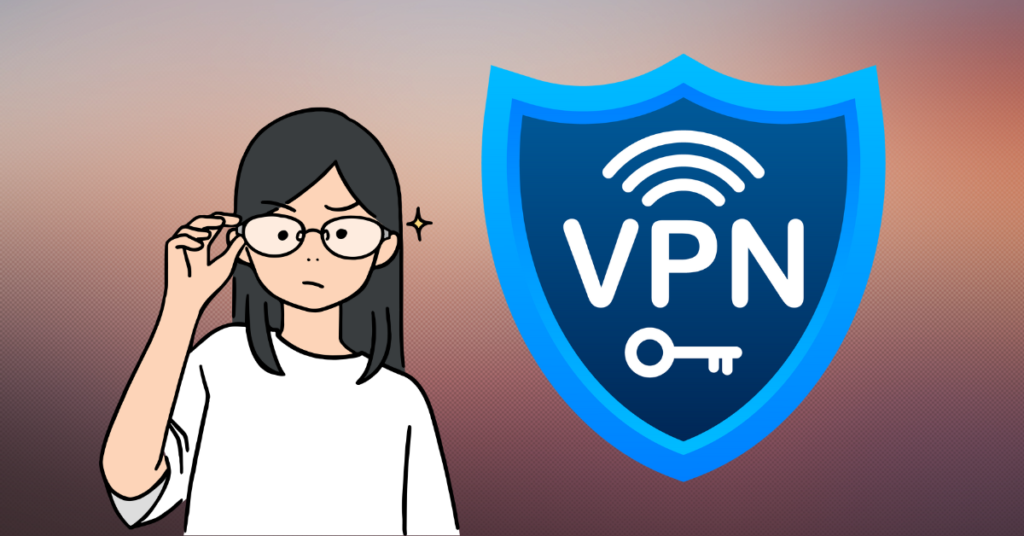What is a VPN?
A virtual private network (VPN) is a technology that allows you to create a secure connection over a less-secure network between your computer and the internet. This allows you to securely access local network resources even when you are not physically on the same network, and it can also be used to obscure your online activities from your internet service provider and any third parties.
VPNs use a combination of encryption and tunneling protocols to secure your data as it is transmitted over the internet. When you connect to a VPN, all of your internet traffic is routed through an encrypted tunnel to a server operated by the VPN provider. This server acts as a relay, forwarding your traffic to its final destination while hiding your IP address and encrypting your data to protect it from being intercepted by third parties.
VPNs are often used to protect against online threats such as hackers, malware, and surveillance, and they can also be used to bypass internet censorship and access content that is otherwise restricted in a particular region. Many people also use VPNs to protect their online privacy and anonymity, as it makes it more difficult for third parties to track their online activities.
Why should I use a VPN?
There are several reasons why you might want to use a VPN:
- To protect against online threats such as hackers and malware
- To bypass internet censorship and access restricted content
- To protect your online privacy and anonymity
- To prevent your internet service provider (ISP) from tracking your online activities
- To access streaming services such as Netflix and Hulu that may not be available in your region
How do I choose the best VPN for me?
When choosing a VPN, there are several factors to consider:
- Security: Look for a VPN that uses strong encryption and has a good track record of protecting user data.
- Privacy: Make sure the VPN has a clear privacy policy and does not keep logs of your online activities.
- Speed: Look for a VPN that offers fast connection speeds to avoid slowdowns.
- Server locations: Consider a VPN with a large network of servers in different locations, as this will give you more options for accessing restricted content.
- Compatibility: Make sure the VPN is compatible with your device and operating system.
- Price: Consider your budget when choosing a VPN, but be aware that free VPNs may not offer the same level of security and privacy as paid ones.
ExpressVPN is the perfect choice if you’re looking for a reliable VPN.
Is using a VPN legal?
In most countries, using a VPN is legal. However, some countries have laws that restrict or prohibit the use of VPNs, or have imposed limits on their use. It is important to check the laws and regulations of your country before using a VPN.
Can a VPN protect me from hackers?
A VPN can help protect against some types of hacking by encrypting your data and hiding your IP address, making it more difficult for hackers to target you. However, it is important to note that no VPN can completely eliminate the risk of being hacked, and it is still important to practice good online security habits such as using strong passwords and avoiding suspicious websites.
Can a VPN protect my online privacy and anonymity?
A VPN can help protect your online privacy and anonymity by encrypting your data and hiding your IP address. However, it is important to note that no VPN can completely eliminate the risk of being tracked online, and it is still important to be aware of the privacy policies of the websites you visit and the VPN provider you choose.
Can a VPN help me access restricted content?
Yes, a VPN can help you access content that is restricted in your region by routing your internet traffic through a server in a location where the content is available. However, it is important to note that not all VPNs are able to bypass all forms of internet censorship, and some content may still be inaccessible even with a VPN.
Can a VPN slow down my internet connection?
Using a VPN may slightly reduce your internet connection speed, as your traffic is being routed through an additional server and encrypted. However, this reduction in speed should be minimal, and a good quality VPN should not significantly impact your internet connection speed. If you notice a significant decrease in speed when using a VPN, it may be due to the VPN’s server location or the number of users connected to the same server. In this case, you may want to try a different server location or a different VPN provider.
Can a VPN protect me from viruses and malware?
While a VPN can help protect against some types of malware by encrypting your data and hiding your IP address, it is not a replacement for a comprehensive antivirus software. A VPN can help prevent malware from being installed on your device by blocking malicious websites and downloads, but it cannot detect or remove malware that has already been installed.
Can a VPN protect me from government surveillance?
A VPN can help protect against some forms of government surveillance by encrypting your data and hiding your IP address. However, it is important to note that some governments have the resources and capabilities to bypass VPN encryption and track internet activity, and using a VPN may not completely protect you from government surveillance.
Can a VPN protect me from my internet service provider (ISP) tracking my online activities?
Yes, a VPN can help protect against your ISP tracking your online activities by encrypting your data and hiding your IP address. This makes it more difficult for your ISP to monitor your online activities and track your internet usage.
Can I use a free VPN instead of a paid one?
While it is possible to use a free VPN, it is important to be aware that these types of VPNs often have limitations in terms of server locations, connection speeds, and data usage. They may also have less robust security measures and may not prioritize user privacy. It is generally recommended to use a paid VPN for the best security and privacy protection.
Can I use a VPN on all of my devices?
Most VPN providers offer apps for multiple platforms, including Windows, Mac, iOS, and Android. This allows you to use the VPN on a variety of devices, including computers, phones, and tablets. Some VPNs also offer router-level protection, which can protect all devices connected to your home network.
Can I use a VPN to access streaming services such as Netflix and Hulu?
Some VPNs are able to bypass the geoblocks that prevent certain content from being accessed in certain regions. This means that you may be able to use a VPN to access streaming services such as Netflix and Hulu that are not normally available in your region. However, it is important to note that Netflix and other streaming services have implemented measures to block VPNs, so it is not guaranteed that you will be able to access these services using a VPN.
Can I use a VPN to download torrents safely?
Yes, a VPN can help protect your privacy when downloading torrents by encrypting your data and hiding your IP address. This makes it more difficult for third parties to track your online activities and for your ISP to monitor your internet usage. However, it is important to note that some VPNs do not allow torrenting, and it is still important to be aware of copyright laws and the potential risks of downloading copyrighted material.
Can I use a VPN to bypass internet censorship?
Yes, a VPN can help you bypass internet censorship by routing your internet traffic through a server in a location where the censorship is not in place. However, it is important to note that not all VPNs are able to bypass all forms of internet censorship, and some content may still be inaccessible even with a VPN.
Can I use a VPN on a public Wi-Fi network?
Yes, using a VPN on a public Wi-Fi network can help protect your data and online privacy. Public Wi-Fi networks are often unsecured, which means that your data could be at risk of being intercepted by third parties. A VPN encrypts your data and hides your IP address, making it more difficult for third parties to track your online activities and access your personal information.
Do I need to install any software to use a VPN?
Most VPNs require you to install software on your device in order to use the VPN service. This software typically includes a client application that you use to connect to the VPN, as well as the necessary protocols and encryption algorithms. Some VPNs may also require you to install additional software or plugins to access certain features or to use the VPN on certain devices.
How do I set up and use a VPN?
To set up and use a VPN, you will need to do the following:
- Choose a VPN provider and sign up for a subscription (if necessary).
- Download and install the VPN software on your device.
- Launch the VPN client and log in with your account credentials.
- Select a server location and connect to the VPN.
- Once you are connected to the VPN, all of your internet traffic will be routed through the VPN’s server and encrypted, and your IP address will be hidden. You can then use the internet as you normally would, with the added security and privacy protection of the VPN.
Can I trust a VPN provider to keep my data private and secure?
It is important to do your research and choose a reputable VPN provider that has a clear privacy policy and a good track record of protecting user data. Look for a provider that uses strong encryption and does not keep logs of your online activities. It is also a good idea to read reviews and ask for recommendations from trusted sources before choosing a VPN provider.



